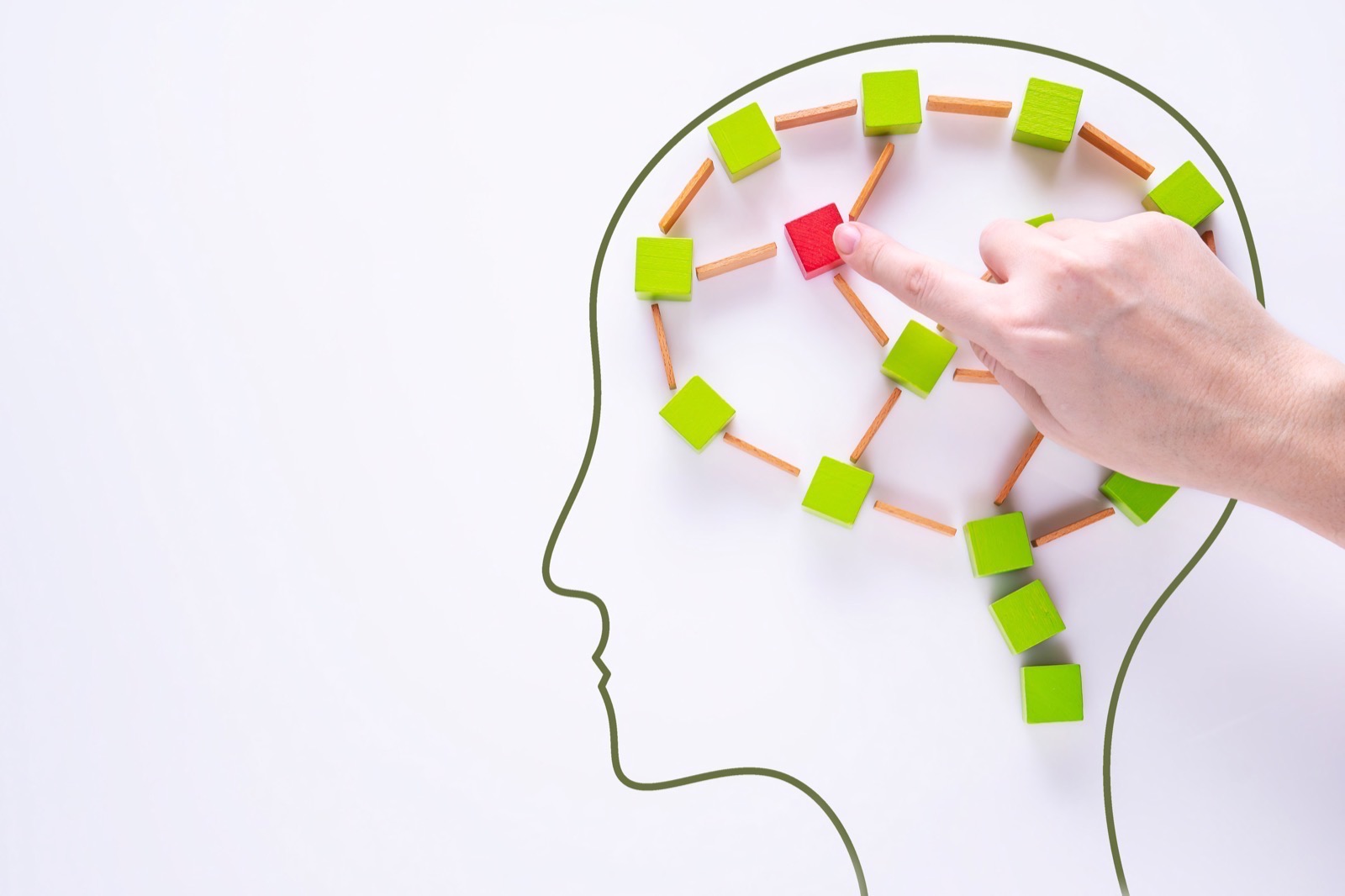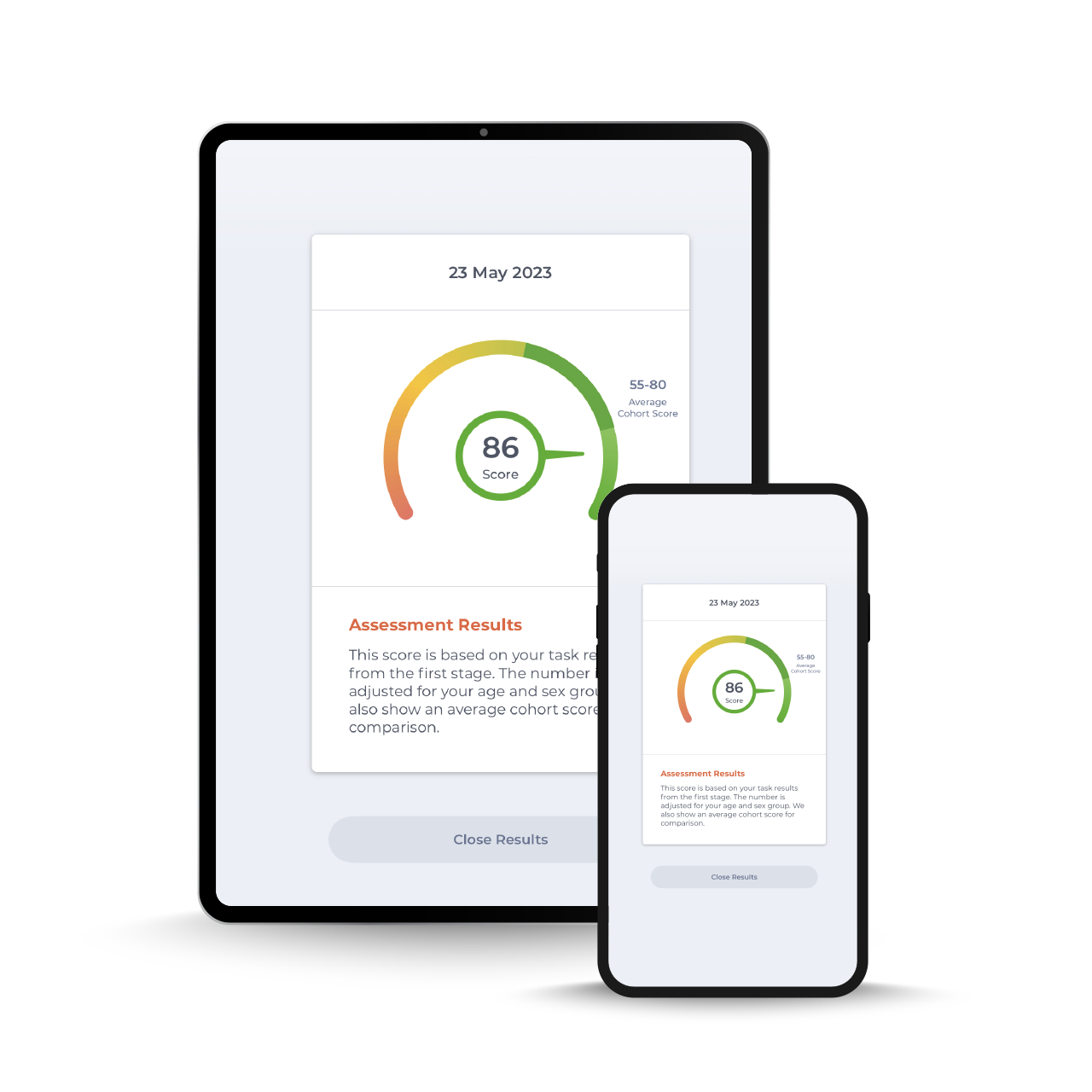Join The HiPAL mailing list for exclusive offers and updates
New version of HiPAL for new and existing HiPAL users read more
Join The HiPAL mailing list for exclusive offers and updates
 HiPAL is not a game – HiPAL is a wellbeing app meticulously designed to assist you with measuring cognitive functions like memory, attention, and speed of processing. We have thoughtfully integrated game-like features into our cognitive assessments to ensure they are engaging and less intimidating. This user-friendly approach enables you to comfortably monitor your cognitive health and make progress towards your wellness goals.
HiPAL is not a game – HiPAL is a wellbeing app meticulously designed to assist you with measuring cognitive functions like memory, attention, and speed of processing. We have thoughtfully integrated game-like features into our cognitive assessments to ensure they are engaging and less intimidating. This user-friendly approach enables you to comfortably monitor your cognitive health and make progress towards your wellness goals.
Our HiPAL tool stands out due to its foundation in rigorous psychological and neuroscientific research. Tested on more than a thousand users, its efficacy in quantifying cognitive health is not just a claim but a scientifically tested outcome. Our commitment to research and evidence-based development means that our tool is something very different than a game; it is a scientifically backed approach to enable you to monitor cognitive health and wellbeing. For those seeking an engaging way to quantify their mental capabilities, our cognitive wellbeing tool offers an innovative and effective solution.
Take control of your cognitive health today with HiPAL.
 Being in control of one’s cognitive health is crucial for several reasons. Firstly, cognitive health encompasses not only memory and thinking skills but also the ability to learn new things, reason, concentrate, and make judgments. Good cognitive health is essential for daily functioning, enabling us to make decisions, solve problems, and maintain our independence. Particularly as we age, maintaining cognitive health becomes integral to preserving our quality of life and autonomy. Secondly, strong cognitive health is closely linked to emotional wellbeing. When our cognitive functions are in good shape, we are better equipped to manage stress, maintain positive social relationships, and cope with life’s challenges. This is especially important in today’s fast-paced world, where cognitive overload is a common issue, often leading to stress and decreased productivity.
Being in control of one’s cognitive health is crucial for several reasons. Firstly, cognitive health encompasses not only memory and thinking skills but also the ability to learn new things, reason, concentrate, and make judgments. Good cognitive health is essential for daily functioning, enabling us to make decisions, solve problems, and maintain our independence. Particularly as we age, maintaining cognitive health becomes integral to preserving our quality of life and autonomy. Secondly, strong cognitive health is closely linked to emotional wellbeing. When our cognitive functions are in good shape, we are better equipped to manage stress, maintain positive social relationships, and cope with life’s challenges. This is especially important in today’s fast-paced world, where cognitive overload is a common issue, often leading to stress and decreased productivity.
Being proactive about cognitive health can have long-term benefits, including the potential to reduce the risk of cognitive decline and associated conditions like dementia and Alzheimer’s disease. Engaging in activities that challenge the brain, adopting a healthy lifestyle, and staying socially active are all strategies that contribute to maintaining cognitive health. Furthermore, being in control of cognitive health has a broader societal impact. It can lead to a healthier, more engaged, and productive population, reducing the burden on healthcare systems and societal resources. Ultimately, prioritising cognitive health is not just about individual wellness; it’s about fostering a society where individuals can lead fulfilling lives, contribute meaningfully, and age gracefully, maintaining their mental faculties and independence for as long as possible.
A first step towards taking control of one’s cognitive health is to measure and track the cognitive health status regularly.
 Dedicate just a few minutes each month to HiPAL and gain valuable insights into your cognitive health, quantified in one single easy-to-understand number. Summarising cognitive health in a single number offers a significant advantage in terms of simplicity and comprehensibility. The human brain is an incredibly complex system, and cognitive health encompasses a vast range of functions, including memory, attention, speed of processing, and more. For individuals interpreting a multitude of individual metrics related to these functions can be overwhelming and confusing. A singular, consolidated cognitive health score simplifies this complexity, making it more accessible and understandable. It provides a clear, concise indicator of overall cognitive health, much like a temperature reading for physical health. This singular number can serve as a benchmark for individuals to monitor their cognitive wellness over time.
Dedicate just a few minutes each month to HiPAL and gain valuable insights into your cognitive health, quantified in one single easy-to-understand number. Summarising cognitive health in a single number offers a significant advantage in terms of simplicity and comprehensibility. The human brain is an incredibly complex system, and cognitive health encompasses a vast range of functions, including memory, attention, speed of processing, and more. For individuals interpreting a multitude of individual metrics related to these functions can be overwhelming and confusing. A singular, consolidated cognitive health score simplifies this complexity, making it more accessible and understandable. It provides a clear, concise indicator of overall cognitive health, much like a temperature reading for physical health. This singular number can serve as a benchmark for individuals to monitor their cognitive wellness over time.
From a clinical and research perspective, a single cognitive health score facilitates a more streamlined and effective approach to monitoring and interventions. Where time and resources are often limited, a single number can quickly convey a person’s cognitive status, aiding in swift decision-making and potentially early intervention. For researchers, it provides a standardised measure that can be used across studies, enhancing the comparability and generalisability of findings.
HiPAL’s aggregated output score provides a starting point to the intricacies of the brain’s functioning in a manner that is not only user-friendly but also scientifically robust, allowing for a broader understanding of cognitive health trends and patterns across different populations. In essence, while the brain’s workings are complex, HiPAL’s cognitive health score demystifies this complexity, offering a practical and efficient tool for both individuals and professionals in the field.
 HiPAL is an innovative cognitive wellbeing app that stands out in the digital health landscape. Developed after hundreds of hours of meticulous research, HiPAL is not just another app; it is a testament to the power of combining technology with scientific rigour. The app’s design and functionality are deeply rooted in scientifically proven methods of cognitive testing, making it a reliable tool for those looking to measure their cognitive abilities. By prioritising research-backed strategies, HiPAL offers users a unique and effective way to engage with their cognitive health. Its interface and short tests are crafted to assess cognitive function, reaping the benefits of well-researched methodologies.
HiPAL is an innovative cognitive wellbeing app that stands out in the digital health landscape. Developed after hundreds of hours of meticulous research, HiPAL is not just another app; it is a testament to the power of combining technology with scientific rigour. The app’s design and functionality are deeply rooted in scientifically proven methods of cognitive testing, making it a reliable tool for those looking to measure their cognitive abilities. By prioritising research-backed strategies, HiPAL offers users a unique and effective way to engage with their cognitive health. Its interface and short tests are crafted to assess cognitive function, reaping the benefits of well-researched methodologies.
In the development of HiPAL, a significant emphasis was placed on user testing, with over 1,000 users participating in the app’s trial phase. This extensive user testing has played a crucial role in complementing the scientific approach taken by the development team. By integrating feedback and data from a diverse pool of users, the creators of HiPAL have been able to refine and adapt the app. This user-centric approach, combined with the hundreds of hours of scientific research, ensures that HiPAL is not just theoretically sound but also practically effective. The insights gained from the user testing have been instrumental in shaping the app’s features and functionalities, making it a well-rounded cognitive wellbeing tool. The significant user involvement highlights HiPAL’s commitment to delivering an app that is both scientifically grounded and tailored to the experiences of its users, making it a standout choice for anyone seeking to track their cognitive abilities.
 Cognitive testing is a pivotal tool in assessing cognitive function, offering a window into the intricate workings of the human brain. By evaluating how individuals encode, store, and retrieve information, memory tests provide essential insights into various cognitive processes. These tests can range from simple recall tasks, like remembering objects, to more complex exercises that require the manipulation of information in working memory. By analysing performance on these tasks, researchers and clinicians can gauge aspects of cognitive health such as attention, processing speed, and executive function. Cognitive testing is particularly valuable because it can detect subtle changes in cognitive abilities that might not be apparent in everyday activities. For instance, in ageing populations, cognitive tests can reveal early signs of cognitive decline, offering a chance for timely intervention. Similarly, in educational and occupational settings, more comprehensive tests can identify areas where individuals might need additional support or training.
Cognitive testing is a pivotal tool in assessing cognitive function, offering a window into the intricate workings of the human brain. By evaluating how individuals encode, store, and retrieve information, memory tests provide essential insights into various cognitive processes. These tests can range from simple recall tasks, like remembering objects, to more complex exercises that require the manipulation of information in working memory. By analysing performance on these tasks, researchers and clinicians can gauge aspects of cognitive health such as attention, processing speed, and executive function. Cognitive testing is particularly valuable because it can detect subtle changes in cognitive abilities that might not be apparent in everyday activities. For instance, in ageing populations, cognitive tests can reveal early signs of cognitive decline, offering a chance for timely intervention. Similarly, in educational and occupational settings, more comprehensive tests can identify areas where individuals might need additional support or training.
However, for cognitive testing to be truly effective, especially in a context like a cognitive wellbeing app, it is critical to present the results in a manner that is easily understandable to the user. Translating complex cognitive data into simple, easy-to-understand numbers or scores is essential. This approach not only makes the information more accessible to users of varying backgrounds but also helps them track their progress over time in a straightforward way. By summarising cognitive performance in clear numerical values, apps like HiPAL empower users to take control of their cognitive health. They can easily see improvements, which in turn can motivate continued use, engagement with cognitive exercises and lifestyle adjustments. This user-friendly approach to data presentation is crucial in ensuring that the benefits of cognitive testing are fully realised by a broad audience, making tracking of cognitive wellbeing accessible and manageable for everyone.
 Monitoring cognitive health over time is critical because it allows for the early detection of changes in cognitive functions, which can be crucial for timely intervention and treatment. Cognitive abilities naturally fluctuate and can be influenced by various factors including ageing, stress, lifestyle choices, and medical conditions. Regular monitoring helps in tracking these changes, providing valuable insights into cognitive health. Early detection of cognitive decline is particularly important in managing and potentially slowing the progression of conditions like dementia and Alzheimer’s disease. Additionally, by monitoring cognitive health, individuals can assess the effectiveness of their lifestyle choices, such as diet, exercise, and mental stimulation, in maintaining or improving their cognitive abilities. This ongoing assessment helps in making informed decisions about health and lifestyle.
Monitoring cognitive health over time is critical because it allows for the early detection of changes in cognitive functions, which can be crucial for timely intervention and treatment. Cognitive abilities naturally fluctuate and can be influenced by various factors including ageing, stress, lifestyle choices, and medical conditions. Regular monitoring helps in tracking these changes, providing valuable insights into cognitive health. Early detection of cognitive decline is particularly important in managing and potentially slowing the progression of conditions like dementia and Alzheimer’s disease. Additionally, by monitoring cognitive health, individuals can assess the effectiveness of their lifestyle choices, such as diet, exercise, and mental stimulation, in maintaining or improving their cognitive abilities. This ongoing assessment helps in making informed decisions about health and lifestyle.
Obtaining a single, easy-to-understand number for each test conducted monthly significantly simplifies this monitoring process. It transforms complex cognitive data into a straightforward metric that one can easily track and compare over time. This simplification is especially beneficial for those who may not have the expertise to understand detailed cognitive assessments. A single number, akin to a regular health check-up score, makes it more likely for people to engage with and take proactive steps towards their cognitive health. Regular, simplified feedback can motivate people to maintain or adopt healthier lifestyles and seek professional advice when necessary. Ultimately, this approach democratises the understanding and management of cognitive health, making it accessible and manageable for a broader spectrum of the population.
 Sharing cognitive health information with friends and family can be greatly beneficial for both emotional support and practical management of cognitive wellbeing. When cognitive health is distilled into a single number, it becomes a powerful tool for communication. This simplification demystifies the complexity of cognitive health, making it easier for loved ones to understand and engage with. A singular metric, tracked over time, provides a clear and tangible way to discuss one’s cognitive journey, fostering an environment of support and collective awareness. Loved ones become allies in the process, helping to monitor changes and encouraging proactive steps towards cognitive health. This shared understanding can lead to a supportive network that rallies around lifestyle choices that benefit cognitive health, such as engaging in brain-stimulating activities, maintaining a healthy diet, and keeping up with regular check-ups.
Sharing cognitive health information with friends and family can be greatly beneficial for both emotional support and practical management of cognitive wellbeing. When cognitive health is distilled into a single number, it becomes a powerful tool for communication. This simplification demystifies the complexity of cognitive health, making it easier for loved ones to understand and engage with. A singular metric, tracked over time, provides a clear and tangible way to discuss one’s cognitive journey, fostering an environment of support and collective awareness. Loved ones become allies in the process, helping to monitor changes and encouraging proactive steps towards cognitive health. This shared understanding can lead to a supportive network that rallies around lifestyle choices that benefit cognitive health, such as engaging in brain-stimulating activities, maintaining a healthy diet, and keeping up with regular check-ups.
Moreover, involving friends and family in one’s cognitive health journey can lead to early detection of potential issues, as those close to us might notice subtle changes that we ourselves might overlook. The single number that represents cognitive health, tracked consistently over time, can act as a point of reference for these discussions, providing a non-intimidating entry point into conversations that might otherwise be difficult to broach. As this number encapsulates complex data into an accessible format, it can help to reassure friends and family when cognitive health is stable or improve motivation to seek professional advice when necessary. In essence, sharing this distilled cognitive health information can help create a community of care, ensuring that individuals do not navigate the intricacies of cognitive health in isolation but with the invaluable support of their personal community.
 HiPAL employs an intuitive scoring system that ranges from 0 to 100, with higher scores representing better cognitive performance. This straightforward scoring mechanism is designed to give users a clear understanding of their memory and cognitive abilities. More importantly, HiPAL enhances this evaluation by providing comparative data from age and sex-matched healthy adults; for ease of understanding HiPAL’s score is adjusted for this comparative data such that the normative data is always the same. This comparative aspect offers a valuable context, allowing users to understand their scores in relation to a normative benchmark. Such a feature is particularly beneficial as it helps users gauge where they stand in terms of cognitive health compared to their peers. By offering this perspective, HiPAL not only aids in self-assessment but also fosters a deeper understanding of one’s cognitive functioning, encouraging users to engage more actively in improving or maintaining their cognitive health. This approach demystifies cognitive assessment, making it a more approachable and informative experience for users. If you are worried about your results, it is always recommended to seek professional support, help and advice.
HiPAL employs an intuitive scoring system that ranges from 0 to 100, with higher scores representing better cognitive performance. This straightforward scoring mechanism is designed to give users a clear understanding of their memory and cognitive abilities. More importantly, HiPAL enhances this evaluation by providing comparative data from age and sex-matched healthy adults; for ease of understanding HiPAL’s score is adjusted for this comparative data such that the normative data is always the same. This comparative aspect offers a valuable context, allowing users to understand their scores in relation to a normative benchmark. Such a feature is particularly beneficial as it helps users gauge where they stand in terms of cognitive health compared to their peers. By offering this perspective, HiPAL not only aids in self-assessment but also fosters a deeper understanding of one’s cognitive functioning, encouraging users to engage more actively in improving or maintaining their cognitive health. This approach demystifies cognitive assessment, making it a more approachable and informative experience for users. If you are worried about your results, it is always recommended to seek professional support, help and advice.
 HiPAL as a cognitive wellbeing app was meticulously designed and developed through a collaborative effort between individuals who are deeply concerned about their cognitive wellbeing and our team of experts in the field. This inclusive approach ensures that HiPAL resonates with its users’ needs and experiences, providing a user-centric platform. The input from those who are actively seeking ways to maintain or improve their cognitive health has been instrumental in shaping the app’s features and functionalities. This collaboration has resulted in an app that not only understands the user’s needs but also addresses them in a practical and effective way. To name just very few:
HiPAL as a cognitive wellbeing app was meticulously designed and developed through a collaborative effort between individuals who are deeply concerned about their cognitive wellbeing and our team of experts in the field. This inclusive approach ensures that HiPAL resonates with its users’ needs and experiences, providing a user-centric platform. The input from those who are actively seeking ways to maintain or improve their cognitive health has been instrumental in shaping the app’s features and functionalities. This collaboration has resulted in an app that not only understands the user’s needs but also addresses them in a practical and effective way. To name just very few:
But HiPAL is not just about the benefits of the app, but also about benefits for the user. These benefits are multifaceted, particularly in its ability to monitor and measure cognitive wellbeing. The ability of HiPAL to detect subtle changes in cognitive function over time is highly significant and very relevant to the user, especially when considering modifiable risk factors for cognitive decline. Modifiable risk factors are behaviours or exposures that can be altered to decrease the likelihood of disease or adverse health outcomes. In the context of cognitive health, these include factors like diet, physical activity, mental engagement, social interaction, and management of chronic conditions such as diabetes or hypertension.
Early detection of cognitive changes by HiPAL plays a pivotal role in intervention and management of these modifiable risk factors. For instance, if the app detects early signs of cognitive decline, it could prompt the user to seek professional help and advice, and/or engage in specific brain-stimulating activities or exercises known to bolster memory function. Similarly, if there are indications of cognitive decline, dietary adjustments or stress reduction techniques might be appropriate, given that nutrition and stress levels can significantly impact cognitive performance.
Moreover, by continuously monitoring cognitive health, HiPAL can help users identify patterns or lifestyle choices that may correlate with fluctuations in their cognitive health. This feedback allows for timely adjustments in routines or habits, potentially slowing down negative cognitive trends. For instance, a user noticing a decline in cognitive health might be motivated to increase social activities or adjust their sleep patterns, both known to influence cognitive health positively. For clarity, HiPAL should not be seen as a replacement or substitution for professional medical help and advice.
In essence, HiPAL’s ability to detect subtle cognitive changes empowers users to take proactive, personalised steps in managing their cognitive health. This can lead to better outcomes, particularly when it involves modifying behaviours and lifestyle choices that are within the user’s control. The app effectively bridges the gap between early detection and actionable steps, making it a valuable tool in cognitive health management and the preservation of cognitive functions over time.
In summary, the ability to recognise early signs of cognitive decline or improvement as assessed by the wellbeing app HiPAL empowers users to take charge of their cognitive health.
Want to keep informed? For updates on HiPAL, please sign up to our mailing list.